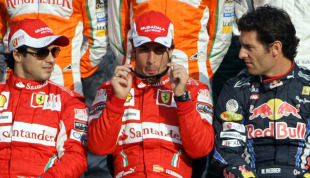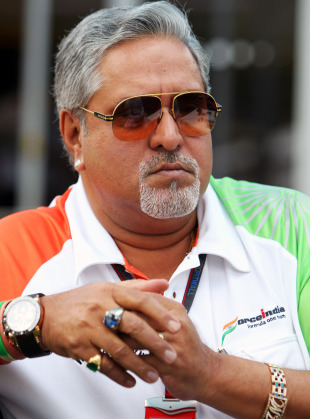- Formula Money
Ferrari's forty-million dollar man

- Feature:
-
Red Bull wins the money championship
- Feature:
-
Counting the cost of F1
On ESPNF1's Facebook site we asked readers to send in their questions on the financial side of Formula One. In the first of two columns, Formula Money's Caroline Reid looks at teams and drivers … in part two in a fortnight's time she will examine circuits and the FIA
How much are the drivers paid … and who has been the worst-paid champion?
The best paid driver in 2010 was Fernando Alonso, who received $40 million in salary from Ferrari - a record for any driver. He hasn't always been top of the pile though and is also the worst-paid champion in the last decade. When he won his first title in 2005, as a relatively unknown driver, he received 'only' $6 million from Renault.
Does a top IndyCar or NASCAR driver get paid more than their equivalent in F1?
The very top F1 drivers get paid more than IndyCar or NASCAR drivers, though there are more mega-earners in NASCAR than there are in F1. Alonso's $40 million compares to $30 million for highest-earning NASCAR driver Dale Earnhardt Jr, however around a dozen NASCAR drivers made $10 million or more in 2010, compared to just five in F1. Most top IndyCar drivers are paid around a tenth of their F1 and NASCAR equivalents
How much money does a top engineer (Ross Brawn, Adrian Newey etc) make?
The top engineers are paid more than most of the drivers. Adrian Newey, for example, is believed to get around $10 million annually from Red Bull Racing, making him the team's highest paid employee ahead of both of its drivers.
How much does it cost to run a mid-table F1 team, including car build, development, travel, promotion etc over a entire season?
The average team budget in 2010 was $166 million

The investment in Formula One made by the majority of team owners is allocated from their marketing budgets and is therefore a cost for them so accordingly any taxable profits will be calculated after this has been deducted. Along these same lines, the teams' profits are calculated after deducting all of its costs from its revenues. Teams tend to avoid trying to make a profit because this situation would indicate that they have not spent all the money which was available to them during the season. Teams can always invest more money to improve their performance so unless they win the championship it is hard for them to justify not spending everything they have. Whilst making a loss is not ideal, because it means that the owner has to pump in additional investment, losses can be offset against the team's future tax bill, so there is an upside.
Teams earn from FOA according to how they stand in the championship after the season. But do they get any money each race, specially the driver who had won the race?
F1's prize money is paid out based on the teams' positions at the end of the year, though teams also receive some travel and freight assistance, which increases for the flyaway races. Unlike most sports, there is no prize money for the drivers.
In terms of cost to run against points, which was the most and least successful team in 2010?
The best performing team was McLaren, which spent an estimated $460,000 per point it scored in 2010. The worst were the three new teams, who together spent around $200 million without gaining a single point.

